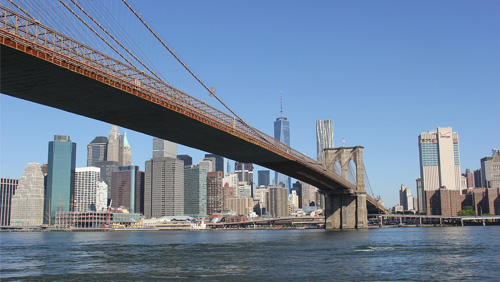Commercial casinos in New York pay substantially more to the state than do their tribal-run counterparts. The commercial venues are subject to state and federal taxes, whereas the tribal properties, due to federal law, don’t. The latter segment, in return, signs compacts with the state in which they operate to give it a part of the revenue, but this amount varies from state to state. Now, commercial casinos are lobbying for equality in how much they have to give up and New York is listening.
 According to Syracuse.com, the New York State Gaming Commission (NYSGC) has commissioned a study to determine what the impact on the state’s finances would be should it decided to give commercial casinos a little relief. It is currently accepting proposals from analysts who would conduct a thorough study on various aspects of the gaming sector, including the ramifications of lowering taxes to be consistent with the revenue-sharing agreements established with the tribes.
According to Syracuse.com, the New York State Gaming Commission (NYSGC) has commissioned a study to determine what the impact on the state’s finances would be should it decided to give commercial casinos a little relief. It is currently accepting proposals from analysts who would conduct a thorough study on various aspects of the gaming sector, including the ramifications of lowering taxes to be consistent with the revenue-sharing agreements established with the tribes.
In New York State, tribes pay about 25% of their slot revenue per the compacts each has with the state, all of which were signed in the late 1990s or early 2000s. In exchange for the payments, the tribes, like the Oneida Nation and the St. Regis Mohawk, are allowed to operate Class III casino gaming on their own lands and are given exclusivity on those games.
The Oneida and St. Regis agreements are constructed in such a way that they cannot be altered except through written agreement between the state and the tribe. The chances of a tribe agreeing to give up a larger chunk of its income to the state are slimmer than the Miami Dolphins going to the Super Bowl this year.
Another tribe, the Seneca Nation, is in a slightly different situation than the others. Its compact expired, and was renewed, in November 2016 and has been embroiled in a bitter batter with the state ever since. The tribe argues that there isn’t any language in the original contract that mandates that it continue revenue-sharing past 2016 and has been withholding all payments since then. The state has been forced to seek court relief and an arbitration panel ordered Seneca earlier this year to give the state $255 million, asserting that it is violating its compact. The tribe is currently fighting that decision.
New York’s four commercial casinos have not been as productive as they would have liked, arguing that they cannot compete against the tribal venues. As opposed to the 25% paid by the tribes, commercial casino operators pay anywhere from 37% to 45% on slot revenue and 10% on table games. Because of this, they approached the state to see what it could do, leading to the “rate equalization” study suggested by the NYSGC.
That plan is nothing more than a smoke screen and a bailout, according to the Oneida tribe’s VP for communication, Joel Barkin. He asserts, “Since opening their doors, there has been an ongoing effort by the commercial casinos to alter the state’s carefully crafted gaming rules, which would be a bait and switch. The existing rules were the product of months of negotiations, and the Oneida people made significant financial and legal sacrifices to reach a deal with the State and counties, at significant cost to our operations… Commercial casinos have made massive and unrealistic promises to their shareholders and to the region, then consistently failed to meet their obligations.”
Still, despite the tribes’ point of view, the study will go forward. Commercial gambling operators, though, shouldn’t get their hopes up, nor should they start thinking about what to do with wider margins. It shouldn’t be expected that the current tax framework be changed by any major amount.